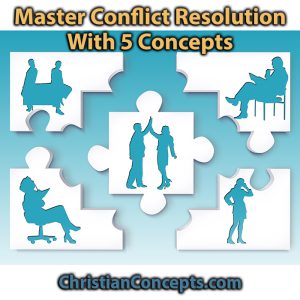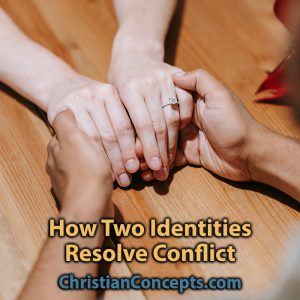Conflict in marriage isn’t always about the facts. Discover how “investments” and past pain cloud your perspective and how to find clarity through validation.
If five people witness a car accident, you will likely get five different eyewitness reports. If three people interpret a Bible verse, they will often have three different opinions of its meaning. In a marriage, a husband and a wife can recall the same event and describe two completely different realities.
Why are there so many different viewpoints? The answer lies in our “investment.” We don’t just see facts; we interpret life through the lens of our convictions, worldviews, and past traumas. To begin understanding perspectives in marriage, we must look at the hidden motivations that drive our reactions.
The Investment: Why We Care So Much
Most of the time, people interpret life based on how life has shaped them. A person who was bitten by a dog as a child might invest significant energy into avoiding dogs. A parent whose child was injured by a faulty car seat might suddenly become obsessed with vehicle safety ratings. However, these situations highlight an unfinished healing process.
In a marriage, these investments often show up as trauma reactions. We care most about what has caused us extreme pain or extreme happiness. One way to find out what someone truly believes is to witness them in a heated argument. The more agitated we become, the more likely we are to bypass our filters and speak our reactionary “raw truth.” The words may be exaggerated, but the underlying motivation is revealed.
Biblical Tensions in Understanding Perspectives in Marriage
When we look to the Bible to resolve these differing viewpoints, we often find verses that seem to pull us in two different directions. How we interpret these verses depends heavily on our perspective.
Interpretation 1: Putting Others First
Many point to Philippians 2:3: “Do nothing out of selfish ambition or vain conceit. Rather, in humility value others above yourselves.” From this perspective, understanding your spouse means laying down your own viewpoint entirely. You might feel that “loving well” requires you to ignore your own pain to accommodate your spouse.
Interpretation 2: Loving Your Neighbor as Yourself
In contrast, Mark 12:31 tells us to “Love your neighbor as yourself.” This perspective suggests a vital balance. You cannot truly love or validate someone else if you have not first learned how to love and validate yourself.
While humility is essential, I believe the second interpretation is the foundation for healthy communication. If you don’t validate your own perspective first, your “selflessness” will eventually turn into resentment. You must learn to “breathe” before you can help your spouse catch their breath.
Seeing and Validating Your Own Perspective
The key to being able to see and validate another person’s perspective starts with seeing and validating yours. Sometimes the need to be right or to be validated is overwhelming. It can feel as essential as breathing.
When you are triggered by a past trauma, your brain enters survival mode. In this state, you aren’t looking for a solution; you are looking for safety. However, once you acknowledge your own motivation such as—“I am acting this way because I am afraid of being controlled”—you are able to breathe again. Once you can breathe, you gain the emotional capacity to understand your spouse’s motivations without feeling threatened.
Mastering Understanding Perspectives in Marriage
If you are struggling to communicate, the first step is to gain understanding—and that understanding must begin with yourself. Before you can accurately interpret your spouse’s actions, you must interpret your own heart.
Start by focusing on yourself with questions like these:
- Why does this specific issue cause me so much pain?
- What part of my past is influencing my current reaction right now?
- Am I seeking perceptive trust or am I stuck in a defensive posture?
Once you have identified your own “investment” and allowed yourself to breathe, you can then flip those questions toward your spouse. Instead of judging their behavior, try to discern their motivation: What is causing them pain here? How might their past be influencing this moment? Are they just trying to feel safe?
When you understand the investment, you are well on your way to negotiating a solution. Instead of judging the “wrong” perspective, you can use discernment to improve the relationship. This shift moves the conversation from “Who is right?” to “How can we both feel safe and heard?”
By ensuring your empathy is healthy, you can keep one foot planted in your reality while reaching out to understand theirs. This is the path to a marriage that doesn’t just survive conflict but grows through it.
The 5-Minute Perspective Check
A tool for finding your “air” mid-argument.
1. Identify the Physical Sensation: Where am I feeling tension? (Tight chest, clenched jaw?) This is your “dashboard” telling you that you’ve lost your air.
2. Validate the Feeling: Tell yourself, “It makes sense that I feel [scared/angry] right now because I value [security/respect].”
3. Separate History from the Present: Is my reaction 10% about what my spouse just said and 90% about a past wound?
4. Pivot to Curiosity: Once you feel your heart rate slow, ask one curiosity-based question: “Can you help me understand what is making this so important to you right now?“
Matt created image using Gemini
Last updated 20260220






























